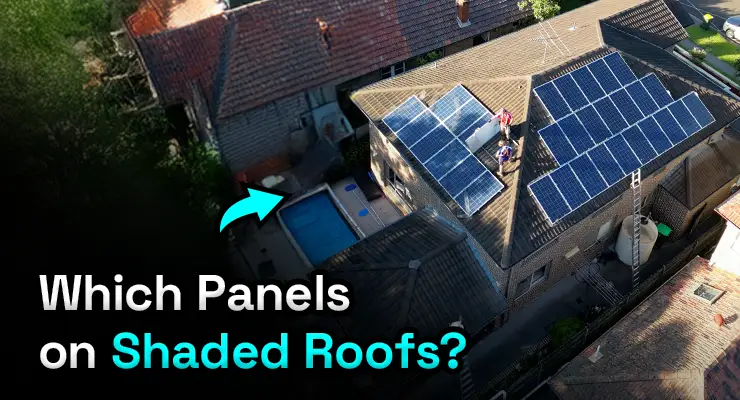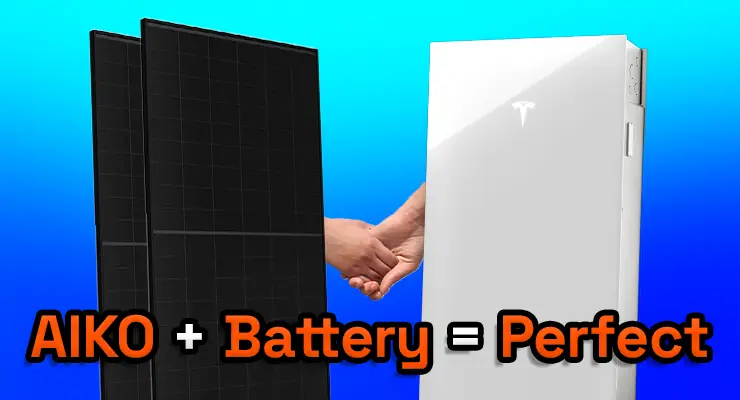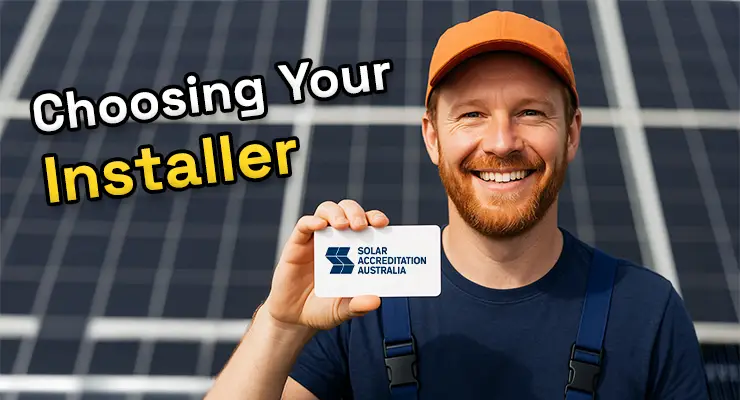Fast read
Government rebate incentives have contributed significantly to the growth of the solar and home battery industries. But they have also attracted dishonest businesspeople who promise deals that are too good to be true.
To close sales, these businesses frequently rely on aggressive sales techniques, phone centres, and door-to-door knocking teams. They frequently fall short on quality and service, and their lengthy warranties are unreliable.
Therefore, it's crucial to be aware of door-to-door salespeople, hard sell and high-pressure sales, and overpromised savings to avoid falling for a solar cowboy or a dubious deal. Before signing anything, it's critical to conduct your research and understand your legal rights as a customer.
Beware of the Solar Cowboys
What to look out for in a dodgy solar company
While the solar and home battery industry is now considered mainstream, the industry has grown mainly from the support of Government rebate incentives. This has also encouraged unscrupulous solar cowboy business types to enter the industry and offer, in many cases, good-to-be-true packages. They use hard-selling tactics, call centres and door-to-door knock teams to get sales over the line.
In many cases, they do not offer the quality and service they and their long-running warranties are promising. So how do you spot a solar cowboy or dodgy offer? Here are the red flags and things to be wary of in your solar and battery storage purchasing journey.
In general, the essential advice is simple, if it’s too good to be true, it usually is. This rule greatly applies to buying solar and batteries.
Suppose you are being pressured to buy with deadlines or exclusive offers. Be cautious and research the facts before signing.
Beware of door-knocking salespeople
The solar cowboys that go door-to-door selling have a terrible reputation and with good reason.
This is the best way to find vulnerable people at home, where they are most relaxed, do the hard sell, and convince people to buy on the spot without them doing their due research, and comparing quotes.
Often the PV and batteries capabilities are oversold, the products are overpriced, and many of these firms use inferior quality equipment.
They will often have a quick turnaround to get the installation completed so you can’t change your mind. However, often the company is out of town so when things go wrong, bringing them back to fix it can be difficult.
Often these salespeople will also not explain your rights as a consumer for direct marketing. Including the fact that you have a 10-business day cooling off period, with solar cowboys, in which you can cancel your order for a full refund.
Do not fall for the hard sell, high-pressure sales
Beware of anyone who pressures you to sign quickly or on the spot to commit to the deal.
You will find that these salespeople are often solely driven by commissions. As such, they may be misleading you regarding the system’s quality, performance, and support.
They will promise anything just to get the sale. The lies and promises have no boundaries, from zero-dollar electricity bills forever to solar panels that work in the moonlight.
As you’re paying several thousand dollars or more, make sure you do your research before signing.
These solar cowboys often create an “urgency” factor or deadline to close the sale. Unfortunately, this has often been something that the Government rebates or Government support is ending, so prices will increase significantly.
The principal “Government rebates” are the Small Scale technology certificates” (STCs). While these are reduced slightly yearly, they only reduce by around $300 per year.
Buying a system for several thousand dollars or more is not worth chasing this small saving.
Watch out for overpromised savings
If the solar cowboy promises you will never pay an electricity bill again or be in credit every billing cycle. This should raise red flags.
This happens rarely and is extremely unlikely unless you are installing an accurate off-grid system that is not connected to the electricity network.
They should be reviewing your electricity bills for at least the previous year or better yet, use hourly consumption data for your home, which you can get from your electricity company.
This should then be compared with the solar generation of the proposed solar & battery system.

A good quote should:
- Give you a guide on how much of your solar will be used by the home during the day,
- Estimate how much will be exported back to the grid;
- Explain the local feed-in Tariff and the likely credit applied to this;
- If you are installing a battery, how effectively is the unit charged daily, and
- How much of this electricity stored in the house will be used daily?
The cheapest quotes and price-beat offers on Facebook often make you the least money
The cheapest quote is rarely the best deal. The only way to reduce the price is to compromise on the quality of the product, the time spent on the installation and the non-existent after-sales service.
If a quote is the cheapest available and the solar system is advertised on price and is marketed as the biggest and most affordable, or if the company promises to beat any “identical quote”, ” this should raise concerns.
Reducing the price increases the risk of something failing or going wrong and paying more.

Be careful of vague quotes about products used
If a solar cowboy only specifies “Tier 1” or premium products on the panel and does not put the brand and models of components that are being used.
Full details of the brands, models, wattage of a panel, number of panels etc. It should be written on the installation quote.
The commonly used phrase “Tier 1” is a misnomer. No industry-accepted standard defines what “Tier 1” is, so you could be getting anything and often. The cheapest, inferior quality product will have a considerable risk of failure and lack of backup and support.
Even if the quote includes the details of brands and models of equipment, look for the clause in the contract where the company can swap the product out to one that is “of equal quality or value” if the specified product cannot be supplied at the time of installation.
Again, this is commonly used by solar cowboys to change the brands of products promised to cheaper, poorer quality equipment because most consumers will not know the difference between different brands of railing, solar panels, solar inverters, and batteries.
New company registrations and phoenixing – A solar cowboy special
There have been many cases of solar cowboy companies that have sold dodgy equipment and installations phoenixing (changing) to a new company and starting again.
Solar Shine – becomes Solar Shinier, funnily enough, in the same premises, with the same staff. But, unfortunately, the Australian Consumer Law has not closed this loophole yet.
When they have been operating for a couple of years and have sold and installed a lot of poor-quality systems that are failing on mass, rather than supporting their clients and fixing the problems, they shut the company down, start up a new one under a similar name, do the same thing again, and leave their old clients high and dry.
Some dodgy solar cowboy company directors have done this over three times in the last decade.
You will often find that these companies will advertise that they have a long history of “X years” in the industry with “X thousands of installations”; however, the company (ABN) they have been operating under has only been around for a short time. They are counting ALL the solar installed by all their failed companies.
We recommend checking how long the company has been operating by doing a company and ABN search on the ASIC website. Look for another installer if they have only been around for less than five years.
A generic, simple quote is not good enough
The quote provided by the solar company should be detailed with extensive information.
If the quote is only a page or two with basic information on the equipment used and pricing, this should raise a significant cause for concern. But then again, some of the large cheap solar system installers will present looking quotes extremely professionally.
The quote should be detailed on the equipment, how it will be installed and where, the system’s performance with savings, details on the warranties and how to claim them.
How to monitor the system and who to contact for service. Ideally, the product brochures and warranty details are also part of the quote.
Read our FAQ on what to look for in a solar & battery quote before buying a system.

A customised system design beats a cookie-cutter design
Every home and business is different in its roof, consumption, and budget. A one-size-fits-all approach does not work in most cases.
Time must be taken to understand your electricity usage, plans and goals, and home’s design and roof space. To custom design a system that will work for you. If custom-designed, it will also be designed to consider future development, such as purchasing an EV or teenagers leaving the house in 3 years.
Just offering a standard-sized package rarely works and may include “hidden costs” later when upgrading and changing the system.
No site inspection leaves room for error
While pestering solar cowboys are one clear sign not to choose this company – be wary of the opposite approach.
We are discussing a company that only offers a quote over the phone or Internet without coming to the site before installation.
All quality solar panel installers should complete an onsite inspection before installation. To ensure that the system can be installed as designed, including the roof’s condition, confirming fastening points and batten spacing.
The site inspection allows the installer to measure precisely where the panels will be installed, determining the inverter solution and positioning.
This is also the time to determine access points to the roof, how to enter the roof cavity and work out the routes for the cabling to the switchboard.
They should also check the switchboard for any additional work that may need to be done to bring it up to standards.
Enabling the company to give you a firm quote that is less likely to be changed before installation.
Companies that do not offer site assessments will regularly have a clause in their contract that they can charge a variation on the quote for any costs incurred that they could not foresee or were not made aware of by you, the customer.
Using sub-contract installers, in some instances, could be an issue
Highly experienced and quality-focused sub-contractors dominate the industry.
But beware of companies that use sub-contract installers and try to say that the sub-contractor is responsible for the installation warranty.
The company you buy the system from is responsible for the installation warranty. So trying to avoid their responsibilities by passing it onto a sub-contractor illegally should raise a red flag.
Companies subcontracting the installation for the system are often marketed as something to be cautious of. However, some companies are advertising that they only use their own, fully employed installers to keep tighter control of the quality of workmanship and installation warranty. In most cases, this is true and an excellent way to find a good company.
Having said this, it can be harder to control the final job if using a sub-contractor. However, there are extremely legitimate and reasonable reasons that some companies use quality subcontractors.
A classic example is a solar installation only the company cannot install when it rains. So a company that has dedicated employees must pay for them to sit idle, and these overheads will be paid for by yourself.

Accreditation and licencing need to be up to date
Companies should include their licencing details and accreditations on their quotes and paperwork.
This should include their Electrical contractor’s or builders’ licence and CEC accreditation, including an accreditation number.
If this is not included, ask them for it and verify the information via the CEC website to ensure it is legitimate.
12. Check company reviews
Check online reviews for the company to ensure they are qualified and when issues happen.
Reviews can be seen on a range of sites from google, to productreview.com.au, trustpilot.com, wordofmouth.com.au, whirlpool and Facebook reviews.
One word of warning, when companies have five hundred or more reviews and have not been in operation for more than 10 years. This could indicate that the reviews are fake and were purchased from website review factories in India or other countries.
Hopefully, all this information can prevent you from becoming the prey of a solar cowboy company.



